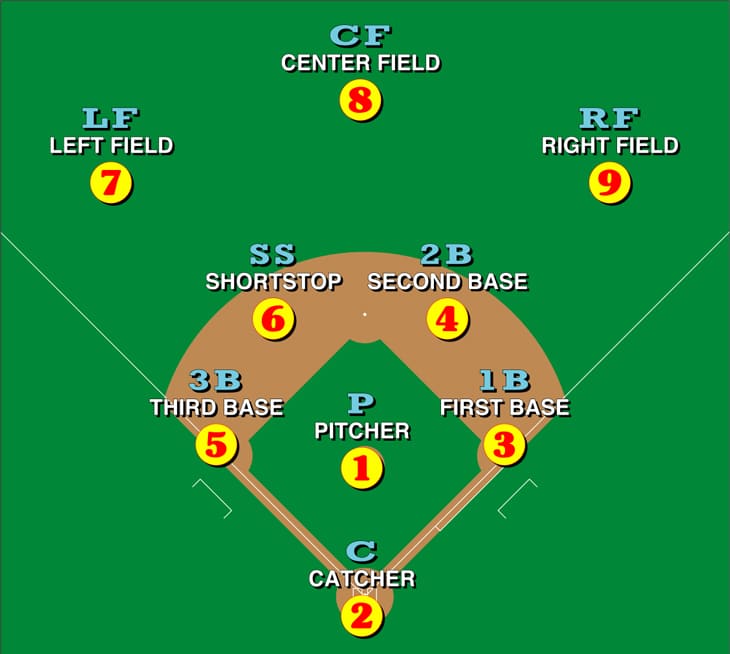How to Start Playing Baseball as an Adult
Reignite Your Love for the Game
The sport of baseball has captivated people of all ages for generations. While youth and school leagues are common avenues for kids to learn the game, opportunities still exist for adults looking to pick up a bat and glove later in life. Whether you have past experience or are just now discovering your interest, getting involved in an adult baseball league can provide exercise, competition, and camaraderie. Softball is one recreational option for adults new to the game. The slower pitch and larger field dimensions make it accessible for beginners to develop fundamental baseball skills. Leagues are commonly found through local parks and recreation departments. Practicing throwing, catching, fielding, and hitting with a softer ball allows basics to be mastered at a lower intensity. Someone with natural athleticism and a drive to improve can become a solid player after consistent participation and coaching. Stories like the determined immigrant woman who rose to championship hero status demonstrate how far dedication and coaching can carry a newcomer.
Scout Out the Right League Fit
Adult baseball continues well past community recreation levels. For the most competitive options, research organizations offering structured seasons and tournaments. The National Adult Baseball Association coordinates leagues across the United States with age-based divisions. Other top leagues include Major/Minor League Baseball and their affiliated Roy Hobbs leagues. These provide organized schedules and officials similar to scholastic play. Independent community leagues also foster the love of the game for adults. Word-of-mouth often helps these start small and expand rapidly as interest grows. A passionate player in Colorado details how their three team circuit ballooned to 10 full squads. Accepting teammates at any experience level builds an inclusive environment. Even 50-year-old first timers who struggle are celebrated for their perseverance, like the Minnesota player whose single was a highlight.
Gear Up for the Diamond
Having the proper baseball equipment enhances safety and performance. Different glove styles suit each position—pitchers require a deeper pocket while infielders need more padding. Bats, balls, batting gloves and protective gear like helmets round out the gear checklist. Quality equipment allows technique to be developed without hindrance from ill-fitting or damaged supplies. Dugouts also provide storage and team socializing space during games. While not completely necessary at beginner levels, committed adult players often invest in matching team uniforms. Jerseys and pants build squad camaraderie and make the experience feel more genuine. Sporting local league or affiliate logos creates organizational pride. Balancing fun with competitiveness helps maintain the true spirit of amateur athletics emphasized in adult play.
Hone Skills Through Practice
No one joins a team fully prepared without prior workouts. Designating time for solo practice and gathering teammates sharpen fundamentals. Throwing routines stretch and strengthen the arm while building accuracy. Fielders practice glove work, footwork and jumping/diving drills. Hitting in a batting cage or off a tee improves eyes on the ball and timing. Running sprints and agility ladders integrate conditioning. Group sessions allow for drills with a toss back and forth. Simulated game situations give reps like rundowns and relays. Pitchers can work on specific deliveries. Position players rotate roles to broaden skills. Video recording and later review pinpoints areas for improvement. Offseason preparing lays the optimal foundation ahead of tryouts and the season kickoff. Dedication to regular honing pays dividends when games begin.
Acclimate to the Competitive Level
Having the raw skills is just half the battle—controlling nerves and strategies require game experience. The first few appearances may be anxious as comfort builds. Bench coaching helps rookies understand situations and next-level thinking. Veterans recognize newcomers are learning, brushing off mistakes non-judgmentally. Chemistry on a unit comes over time with cooperation demonstrated through small successes. Stat tracking lets strengths shine through. Certain skillsets suit pinch hitting, defensive substitutions or starting pitchers differently. Analytics reveal hot and cold zones to practice away deficits. Comebacks remind why persevering always matters. Wins celebrate the full team effort beyond individual stats or blunders. Development marches forward as long as focus stays on enjoying quality time cherished since childhood. Baseball’s beauty remains spreading that joy among fellow fans.
Maintain Health as Priorities Shift
While 30-and-under athletes can bounce back quickly, adulthood brings new responsibilities lagging workout consistency. Joints requiring extra rest to recharge is reality. Time commitments like careers and families necessitate scheduling flexibility. Nutrition plays a larger role in injury prevention versus relying on youthful recovery abilities. Proactively addressing soreness prevents minor issues compounding. Icing, stretching, massage, and targeted exercises offer relief alongside days off. Listen to the body and adjust rather than stubbornly playing through pain risking long-term damage. Alternating between games and practice controls workload. Open communication regarding availability maintains loyalty to the team dynamic. Maturity understands light seasons or coaching when bodies fatigue ensures more years making memories on the diamond.
Passing the Torch to New Generations
Witnessing others embrace the game brings full-circle reflection. With experience comes wisdom to pay forward. Coaching youth teams or starting beginner leagues extends baseball’s heartbeat. Passing accurate mechanics and wisdom cultivates raw abilities. Imparting life lessons through sports builds well-rounded competitors and people. Recruiting new teammates transfers membership to fill future spots. Preserving recreational activities tying communities strengthens society overall. Each player brought to the game adds to that fabric regardless of when their journey starts. For every year able to participate, gratitude grows for how the simple pastime enriched quality of life. Baseball instills lessons transcending any single season. Its foundation sparks future generations lighting fires anew for the national pastime and camaraderie it cultivates across generations. 
